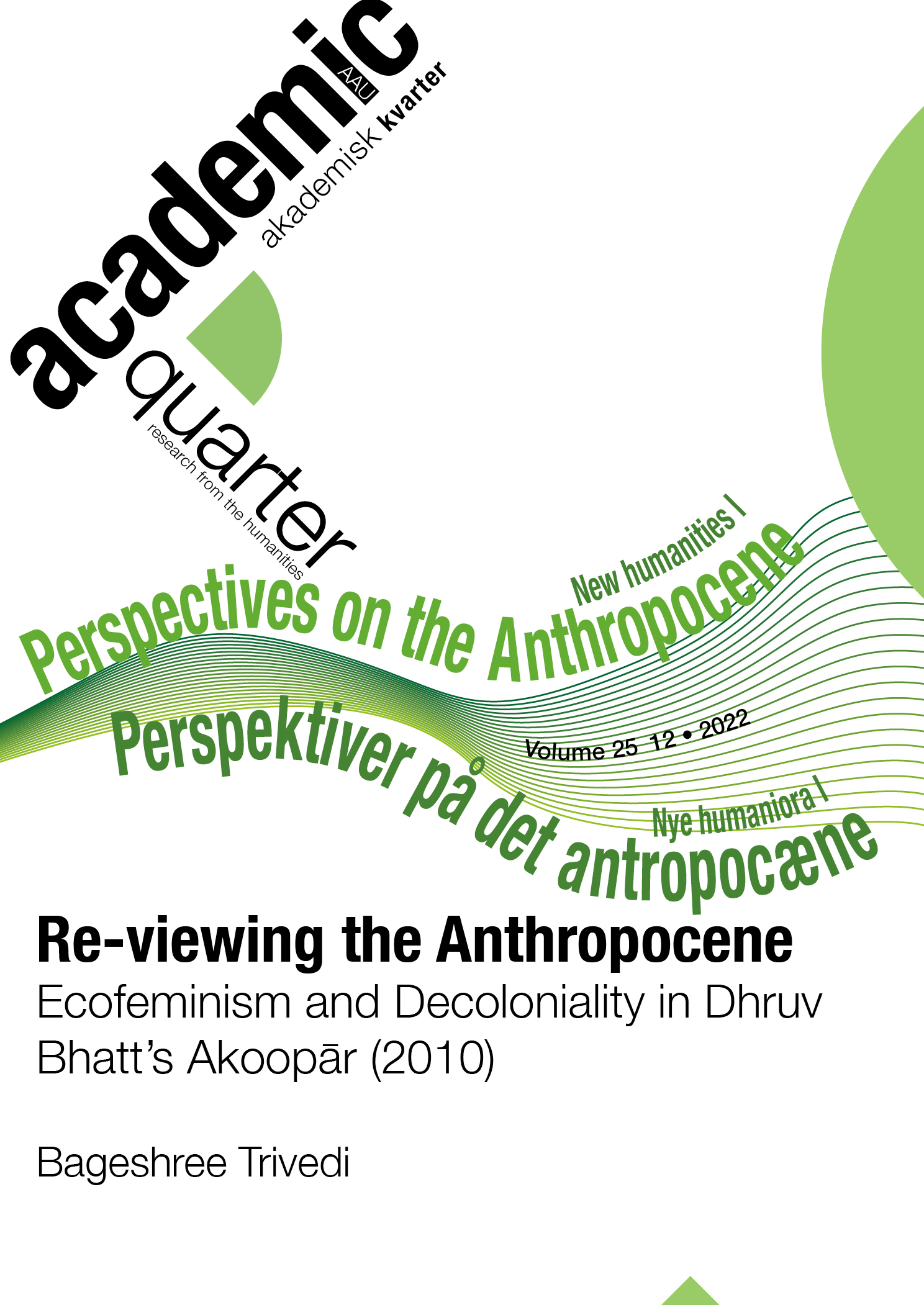Abstract | Abstract
Theoretical research on Dhruv Bhatt – one of the most important contemporary Gujarati novelists – has remained restricted to simplistic ecocritical reading(s). In this article, I analyse Bhatt’s novel Akoopār (2010) to investigate how layered exploration(s) of the ‘female’ as human, ancestor, myth, or affective attitude, as negotiated by the artist-anthropologist narrator, prises open the violence of centres (the Anglophone/the urban/colonialist) and offers an alternative narrative of the Anthropocene by tracing human intervention in the environment through local-cultural mytho-history. In doing so, the novel recentres the subject from eco-‘logy’ whose definition is often hijacked by the ‘logos’ of ‘discovery’, to ‘ecosystem’ depicted as a complex network of environment, cultural knowledge(s), linguistic practices, myth, memory, and collective action. I also use the theoretical approach of ecofeminism to highlight the use of ‘female’ as an approach of resistance in battling ecological crises in postcolonial regions structured through the complex collusion of colonial and traditional patriarchy, and the framework of decoloniality to foreground the significance of epistemic revisions in re-viewing the human-nonhuman divide.
